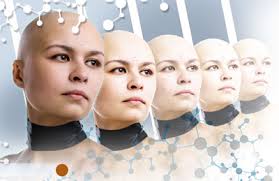Dolly the sheep, the first mammal to be
cloned from an adult cell, was born in 1997. A council on bioethics called by
then-President Bush, and an emergency report by the National Academies, both
published reports deeming that the technology was unsafe and should be banned,
even for research or therapy. Yet, over the past 15 years, both animal and
human genetics research has gotten so advanced that scientists are regularly
creating animal clones and close to being able to create human clones. In fact, these scientific advances have made
it possible for companies to confidently charge customers to clone their pets and
for Chinese scientists to successfully
clone monkeys.
Where the science stands currently, to create
human confident human cloning, it would like likely require a significant
number of failed human pregnancies; so many that it’s hard to imagine ethics
committees allowing the research to happen. Stem cell biologist Yi Zhang, whose
work solved the blocked gene problem, pointed out to Tech Review that the process of creating
just two long-tailed macaque monkeys required 63 surrogate mothers and 417
eggs, all of which resulted in just six pregnancies.
According to the Center
for Genetics and Society, any form of cloning is banned in
46 countries, and reproductive cloning (cloning specifically to create
full-grown humans) is banned in another 32, leaving open the option to clone
human cells for therapeutic uses like growing organs. In the United States, fifteen states prohibit reproductive
cloning, and three prohibit the
use of public funds for cloning research.
Because China hasn’t formally banned cloning
in any way, critics fear that Chinese scientists might attempt a human clone
after their success in monkeys. Yet those researchers, at least, stated they
had no plans to clone humans, as
“social ethics would by no means allow that practice.”
Contributing Sources:
https://futurism.com/human-cloning-whats-stopping
https://en.wikipedia.org/wiki/Human_cloning
https:///...es-whats-stopping-us
